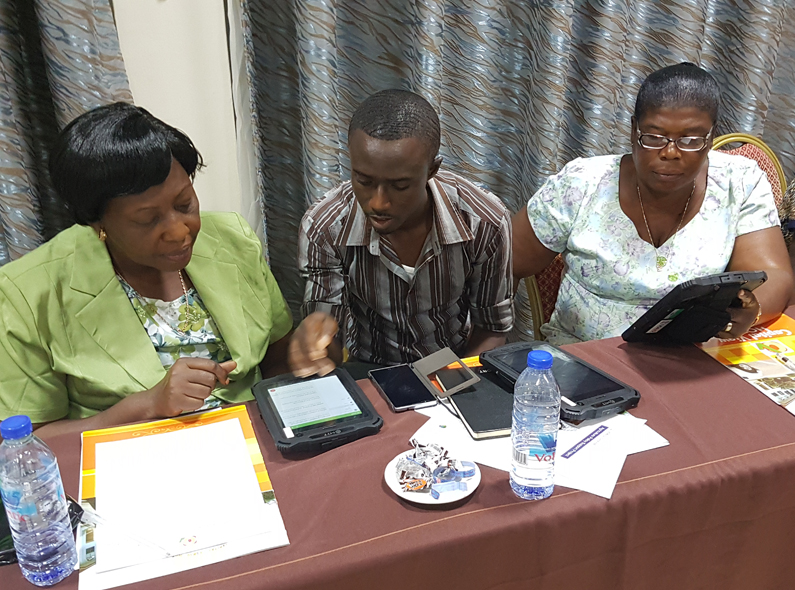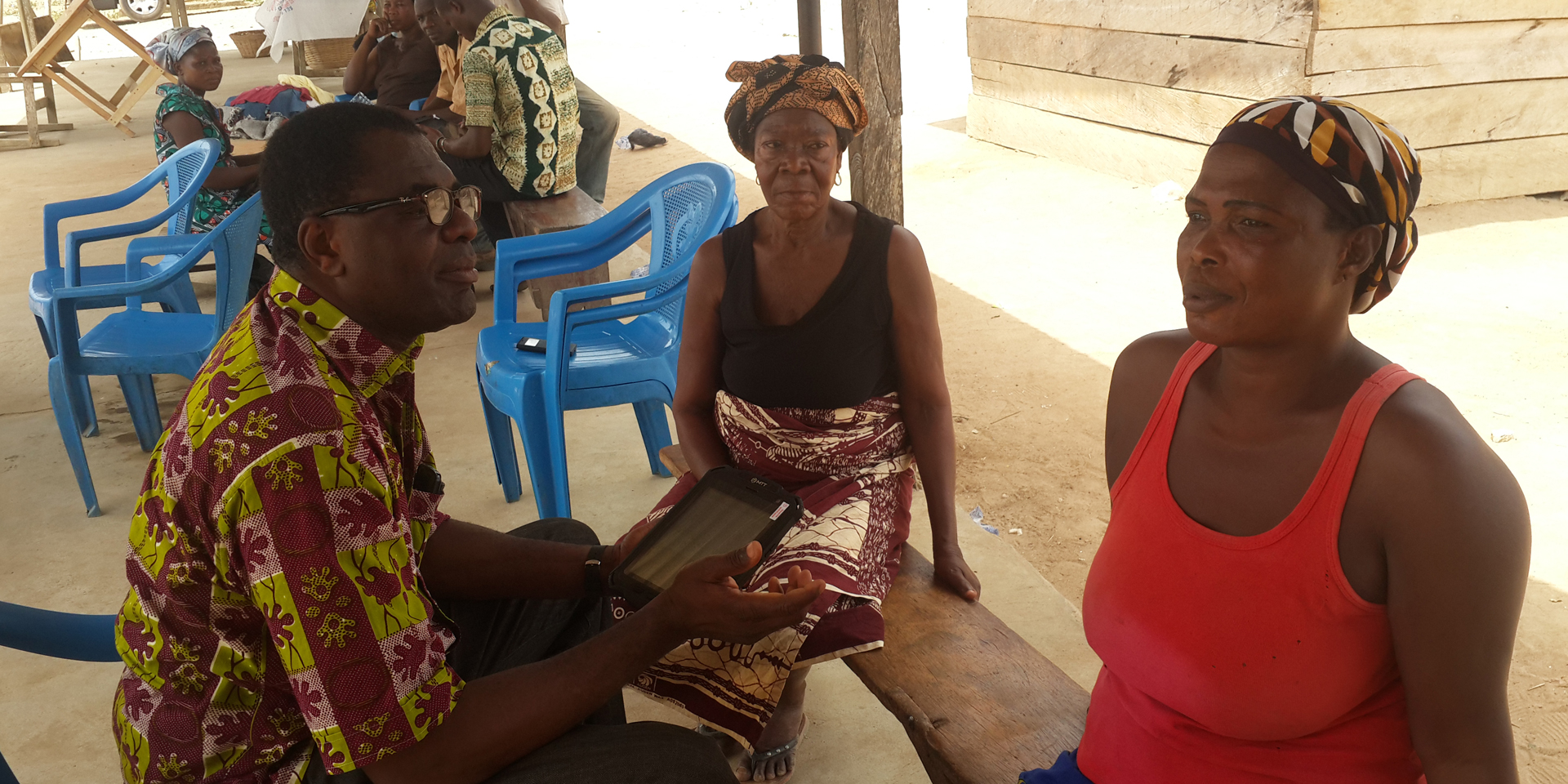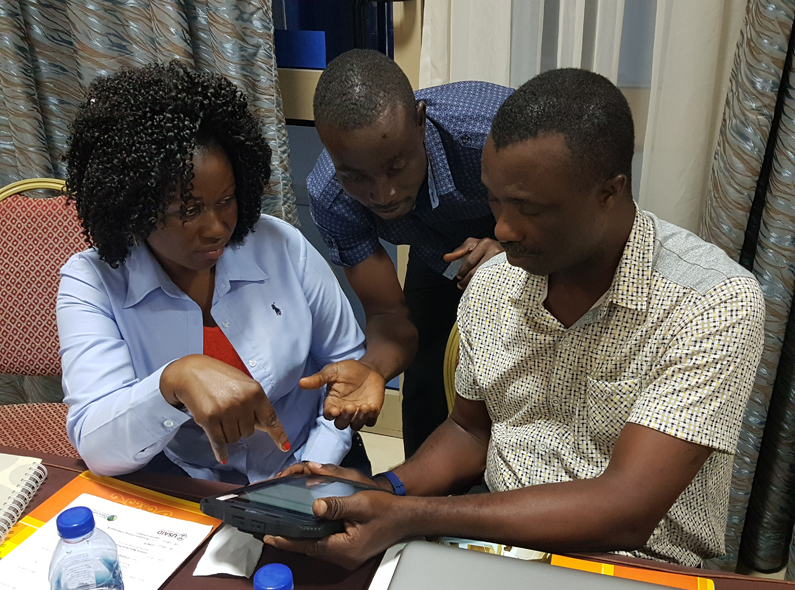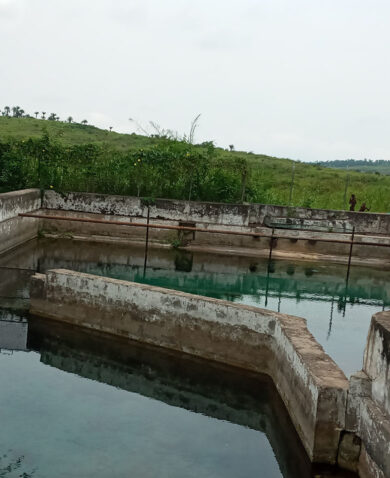Why is a digital system better? Although the previous pencil and paper interviewing (PAPI) system was well-established in Ghana, it created several obstacles. For one, the lengthy process involved made it difficult for agricultural workers to conduct any type of real-time data gathering. Additionally, the paper system increased the probability of mistakes infiltrating overall data collection. The new CAPI system allows the ministry to move away from the PAPI system, and greatly reduces the likelihood that workers will make mistakes as they collect data.

“The exciting aspect of the CAPI system is the elimination of the time used to input and convert data because it is electronically captured,” said Francis Ahimattoh, a management information systems officer at the Ministry of Food and Agriculture. “Once the data is captured, it is converted immediately.”
To house the data produced by the CAPI system, USAID and Chemonics developed a cloud-based Virtual Private Server to safely secure collected data. Setting the system up in this way not only ensures secure storage, but also allows the ministry to easily access all of its data in one location.
Beginning in September 2016, the project and SRID are implementing the CAPI system in a number of districts around the country. This initial term will serve as a pilot, and adjustments may be made during the scaling-up process.
“One of the changes I am excited that CAPI supports is the collection of marketing data,” said Harrison Opuku, director of SRID. “With CAPI, we will collect market information on a weekly basis, and it will be available in markets in real time. Formerly it would have taken about two weeks for the information to reach end users.”
With these technologies that provide reliable data more efficiently, ministry officials are in a better position to develop sound policies that address the actual social, agronomic, and economic conditions of the country.




















































